|
Living TRAVEL -
SINGAPORE 2012
Peranakan Folk Museum
Artefacts mostly from 1890 - 1910 approx.
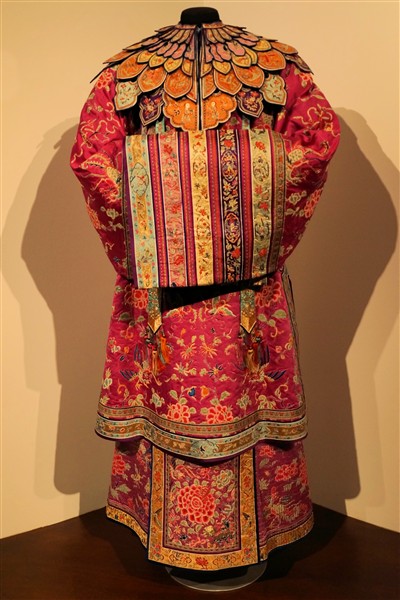
Full Bridal Costume - silk cotton and gold thread
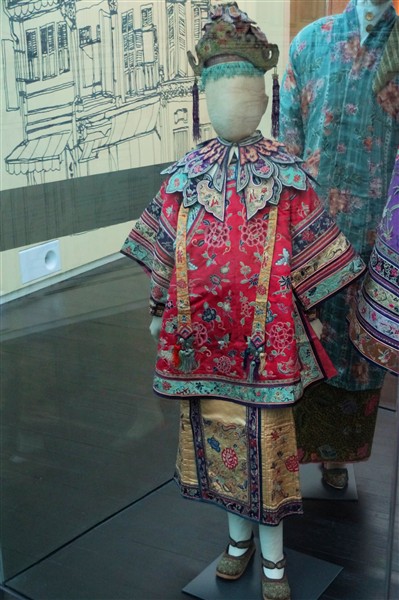
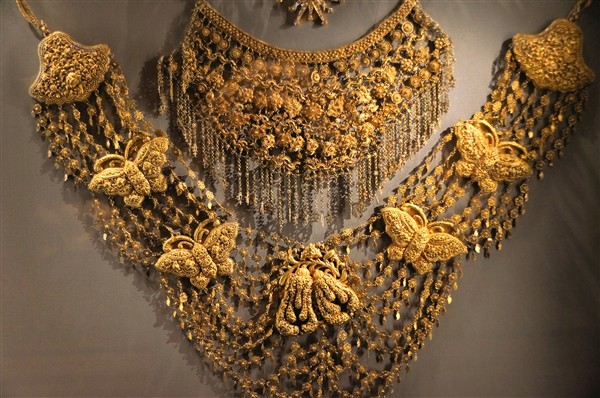
Bridal jewellery - gold
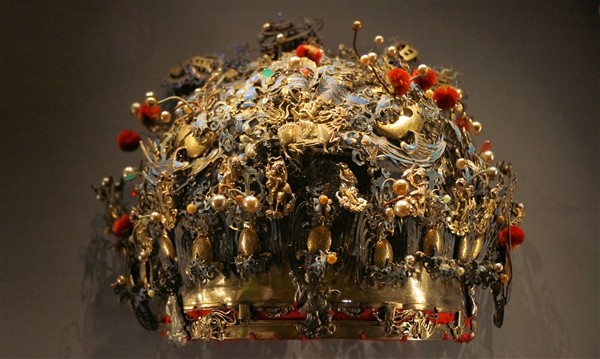
Bridal head-dress - silver and gold
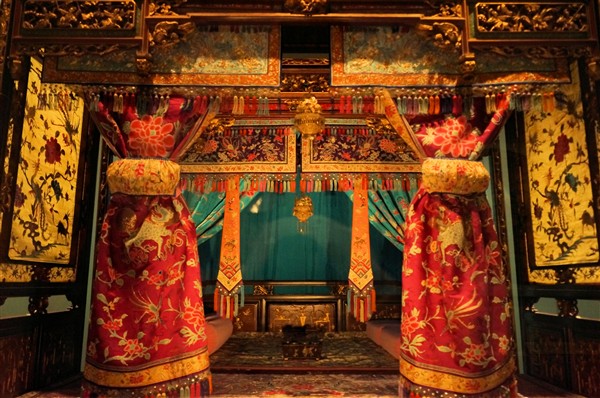
Peranakan Wedding Bed from Penang
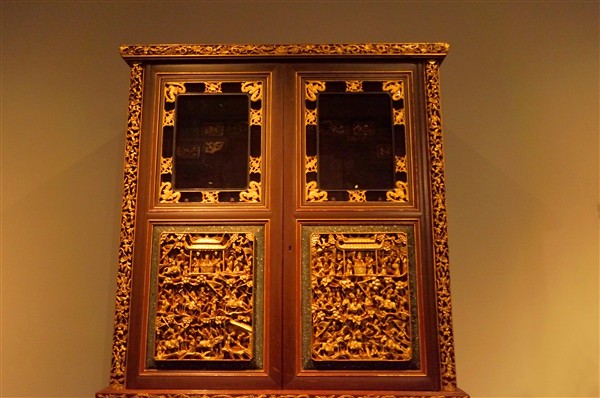
Wardrobe with gold decoration
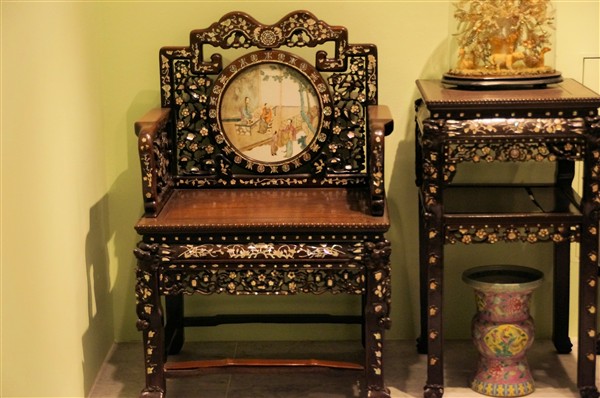
Chair and table
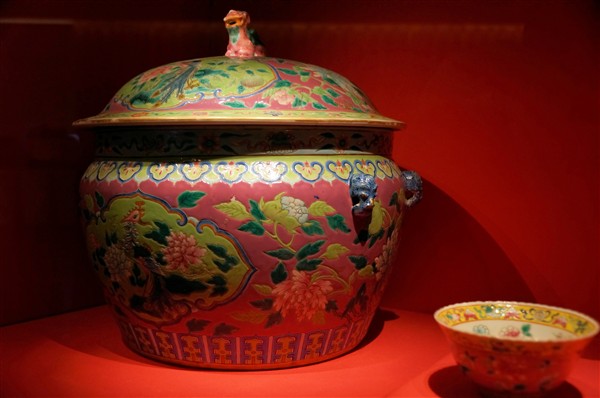
Pottery
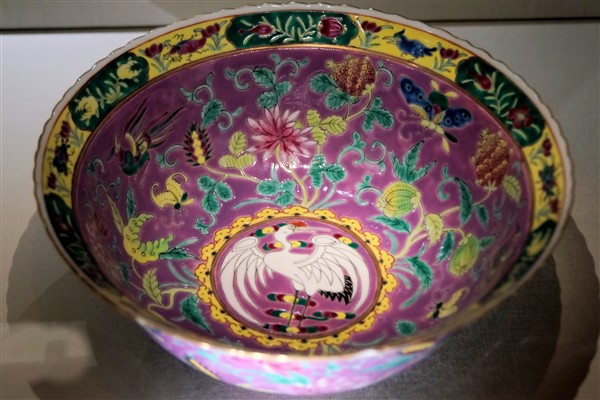
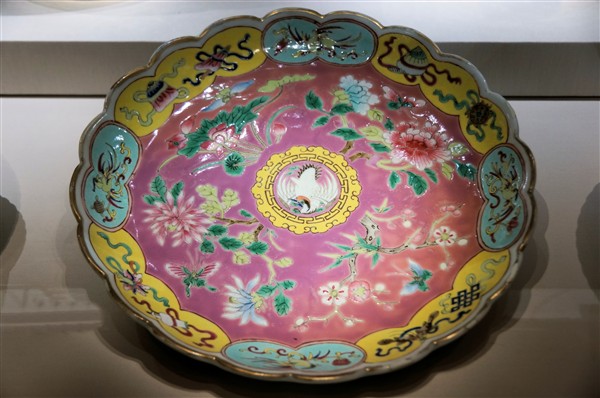
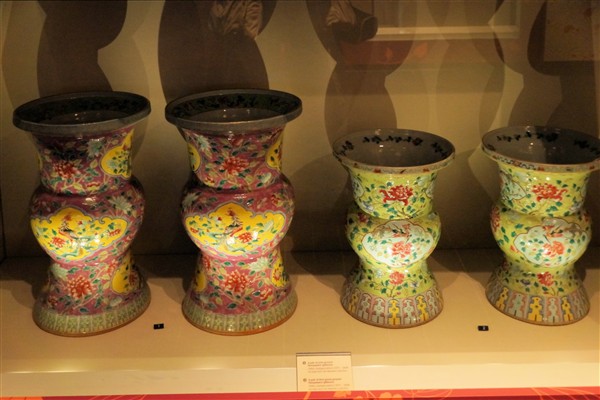
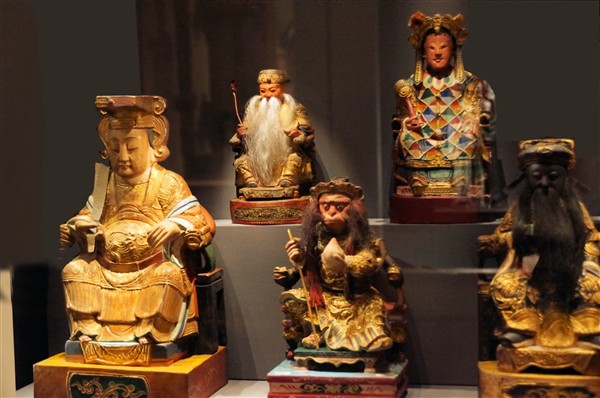
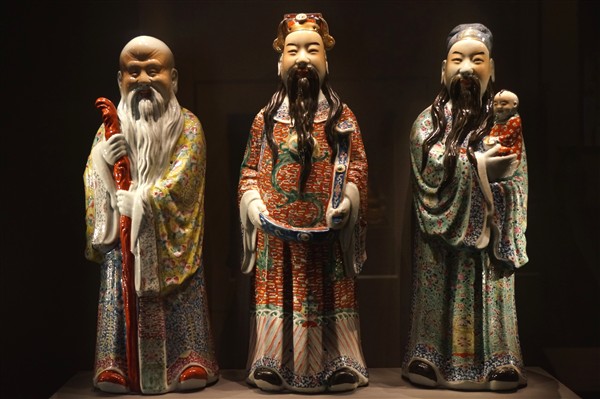
Hok, Lock and Siew - the 3 star gods representing
happiness, prosperity and longevity
- enamelled porcelain, mid 20th
century
MORE SINGAPORE Peranakan Chinese and Baba-Nyonya are terms
used for the descendants of late 15th and 16th-century
Chinese immigrants to the Indonesian archipelago of
Nusantara
during the Colonial era.
Members of this community in Melaka address
themselves as "Nyonya Baba" instead of "Baba-Nyonya". Nyonya is the term for
the ladies and Baba for the gentlemen. It applies especially to the ethnic
Chinese populations of the
British
Straits Settlements of
Malaya and the Dutch-controlled island of
Java and other locations, who have adopted to Nusantara customs --
partially or in full -- to be somewhat assimilated into the local
communities. Many were the elites of
Singapore,
more loyal to the British than to China.
Most have lived for
generations along the
straits of Malacca and not all intermarried with the local
Native Indonesians and
Malays. They were usually traders, the middleman of the British and the
Chinese, or the Chinese and Malays, or vice versa because they were mostly
English educated. Because of this, they almost always had the ability to
speak two or more languages. In later generations, some lost the ability to
speak Chinese as they became assimilated to the
Malay Peninsula's culture and started to speak
Malay fluently as a first or second language.
While the term
Peranakan is most commonly used among the ethnic Chinese for those of
Chinese descent also known as Straits Chinese (土生華人;
named after the
Straits Settlements), there are also other, comparatively small
Peranakan communities, such as Indian Hindu Peranakans (Chitty),
Indian Muslim Peranakans (Jawi
Pekan) (Jawi
being the Javanised Arabic script, Pekan a colloquial contraction of
Peranakan) and Eurasian Peranakans (Kristang)
(Kristang = Christians). The group has parallels to the
Cambodian Hokkien, who are descendants of
Hoklo Chinese. They maintained their culture partially despite their
native language gradually disappearing a few generations after settlement.
[Wikipedia]
ASIA INDEX
|